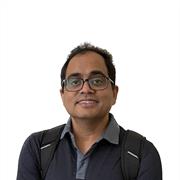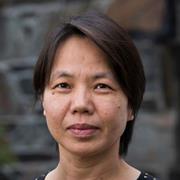Microwave and Wireless Engineering
Spring: Sep 15
Summer: n/a
Part-time (Daytime)
Overview
In this certificate program administered by the Department of Electrical and Computer Engineering, professionals learn exciting new uses of microwave and wireless technology through extensive lab and project work.
Scholarships Available
Some School of Engineering master's and certificate programs offer scholarships to qualified students. To receive full consideration, be sure to complete your application before the submission deadline. Contact the Office of Graduate Admissions at gradadmissions@tufts.edu for more information.
Program Highlights
The five-course certificate program in microwave and wireless engineering is open to students with a bachelor's degree in electrical engineering or physics or with equivalent preparation, including a background in general physics and intermediate circuit theory.
Students interested in earning a graduate degree can often apply these certificate courses toward a Tufts master's degree in electrical engineering. All of our certificate programs can be taken on a part-time basis.
Career Outcomes
With the availability of relatively inexpensive microwave components and improved digital communications, commercial opportunities in the microwave and wireless engineering industry have few limits.
To develop faster computer circuits, computer hardware researchers and designers need to know more about microwave engineering concepts. Radar, satellite, wireless radio and optical communication, and collision avoidance radar are just a few areas which utilize microwave technology. As engineers explore low microwave frequencies and even lower radio frequencies, this technology will be applied to cable, broadcast, television, medical, and other commercial uses.
Application Requirements
- Application Fee
- Resume/CV
- Personal Statement
- Transcripts
- One letter of recommendation
- Official TOEFL, IELTS, or Duolingo test scores (if applicable)
Tuition and Financial Aid
We recognize that attending graduate school involves a significant financial investment. Our team is here to answer your questions about tuition rates and scholarship opportunities.
Please contact us at gradadmissions@tufts.edu.
Faculty

Shuchin Aeron

Shuchin Aeron
Research/Areas of Interest: Machine Learning, Statistical Signal Processing, Information Theory, Optimal Transport

Steven Bell

Steven Bell
Research/Areas of Interest: Engineering education, embedded systems, camera systems and computational photography

Marco Donato

Marco Donato
Research/Areas of Interest: emerging technologies, non-volatile memories, SoC design, hardware for machine learning, noise modeling and reliability

Mark Hempstead

Mark Hempstead
Research/Areas of Interest: computer architecture, computer systems, power-aware computing, embedded systems, mobile computing, computer systems for machine learning, workload characterization, quantum computing, learning sciences and computer systems for human subjects research

Valencia Koomson

Valencia Koomson
Research/Areas of Interest: design of silicon-based mixed-mode VLSI systems (analog, digital, RF, optical), analog signal processing, and optoelectronic system-on-chip modeling and integration for applications in optical wireless communication and biomedical imaging

Ron Lasser

Ron Lasser
Research/Areas of Interest: digital image processing, computer animation, swarm robotics, innovation, engineering method & design

Eric Miller

Eric Miller
Research/Areas of Interest: Statistical- and physics-based signal and image modeling and processing, tomographic image formation and object characterization, and inverse problems. Applications explored include human performance assessment, materials science, airport security, medical imaging, environmental monitoring and remediation, unexploded ordnance remediation, and automatic target detection and classification.

Aseema Mohanty

Aseema Mohanty
Research/Areas of Interest: nanophotonics, optical beam shaping, neuroengineering, chip-scale imaging and microscopy, quantum information systems Research Website: https://sites.tufts.edu/amohanty/

Karen Panetta

Karen Panetta
Research/Areas of Interest: Signal processing; image processing; simulation modeling

Sameer Sonkusale

Sameer Sonkusale
Research/Areas of Interest: Bioelectronics, Biomedical microdevices, Wearables, Ingestibles, Biomedical circuits and systems, micro and nano fabrication, lab-on-chip microsystems, global health and precision medicine, CMOS image sensors for scientific imaging, analog to information converters, analog computing, brain inspired machine learning, active metamaterial devices, circuits, and systems, terahertz devices and circuits

Thomas Vandervelde

Thomas Vandervelde
Research/Areas of Interest: Interaction of light with matter, physics of nanostructures and interfaces, metamaterials, material science, plasmonics, and surfactants, semiconductor photonics and electronics, epitaxial crystal growth, materials and devices for energy and infrared applications.

Mai Vu

Mai Vu
Research/Areas of Interest: machine learning, applied optimization, wireless communications and networks, 5G/6G systems and techniques